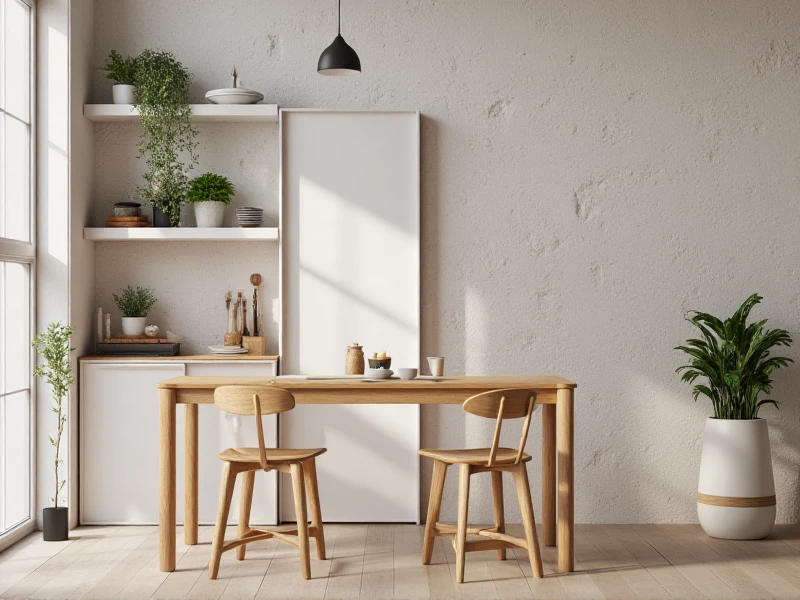Essential Kitchen Utensils: Your Ultimate Guide to Cooking Tools and Why They Matter
2025-06-03

Cooking isn't just about ingredients; it's about the utensils that transform raw food into delicious meals. Choosing the right kitchen utensils streamlines prep, ensures safety, boosts efficiency, and elevates your culinary results. Think beyond just spoons and knives – this guide explores the essential categories, materials, and smart choices for a well-equipped kitchen.
Why Your Choice of Utensils Truly Matters
The wrong utensils can be incredibly frustrating. Flimsy spatulas break under pressure. Poorly balanced knives lead to fatigue and unsafe chopping. Scratched non-stick pans ruin your investment. Quality utensils aren't mere luxuries; they are fundamental tools that directly impact:
1. Efficiency & Flow: The right tool makes tasks quicker and smoother.
2. Food Safety: Non-porous materials, easy-to-clean surfaces, and tools kept in good condition prevent bacterial growth.
3. Cookware Longevity: Using the correct utensils (especially on non-stick or enameled surfaces) prevents scratches and damage.
4. Culinary Results: Whisking effectively, flipping precisely, slicing cleanly – good tools produce better textures and appearances.
Core Categories: Stocking Your Essential Utensil Arsenal
1. Prepping Powerhouses:
Chef's Knife: The absolute workhorse. Invest in a quality 8-inch chef's knife for chopping, dicing, and mincing. Keep it sharp!
Paring Knife: For delicate tasks like peeling, coring, and intricate detail work.
Cutting Boards: Essential surface protectors. Have at least two (wood or bamboo for produce, plastic or composite for raw meat/poultry). Sanitize religiously.
Vegetable Peeler: A sharp peeler saves time and reduces waste. Y-peelers offer excellent control.
Whisk: Crucial for emulsifying sauces, beating eggs, and incorporating air. Silicone-coated whisks are gentle on pans.
Measuring Cups & Spoons: Accuracy is key, especially in baking. Have liquid and dry sets. Stainless steel or durable plastic are best.
2. Cooking Commanders:
Turner/Spatula: The food flipper hero. Choose the right one:
Metal: For stovetop grills and stainless/cast iron pans. Avoid non-stick! Look for thin edges for sliding under food.
Silicone/Nylon: Mandatory for non-stick and enameled cookware. Heat-resistant and gentle.
Fish Spatula: Thin, slotted, and flexible – perfect for delicate foods.
Ladle: Essential for serving soups, stews, sauces, and punches. Choose a size suitable for your most common pots.
Tongs: The ultimate kitchen extension. Locking spring-loaded tongs (10-12 inch) are indispensable for flipping, grabbing, tossing, and serving. Silicone tips protect pans.
Spoon: Large cooking spoons (wooden, slotted metal, or silicone) for stirring, tasting, and serving.
Potato Masher/Ricer: Achieve perfect smooth or textured mashed potatoes, guacamole, or cooked fruit.
3. Serving & Completing Tools:
Kitchen Shears: More than just scissors! They snip herbs, trim fat, open packages, and cut pizza.
Can Opener: Don't underestimate a reliable manual or electric opener. Safety rim openers reduce cut risks.
Grater/Microplane: For zesting citrus, grating cheese, nutmeg, and more. Microplanes offer incredibly fine results.
Colander: Draining pasta, washing produce, straining stocks – a kitchen necessity.
Peppermill/Salt Grinder: Freshly ground spices elevate flavor exponentially.
(Bonus) Instant-Read Thermometer: The only foolproof way to ensure meats are safely cooked to perfection.
Material Matters: Choosing Wisely for Longevity
Stainless Steel: Durable, non-reactive (won't impart flavors), dishwasher safe. Ideal for most prep tools (knives, whisks, measuring cups), ladles, and tongs used on appropriate surfaces. Can be heavy.
Silicone: Heat-resistant (often very high temperatures), flexible, non-stick, non-scratch, easy to clean. Excellent for spatulas, whisks, brush heads, and tong tips used with coated cookware. Durability varies by quality.
Nylon/BPA-Free Plastic: Affordable, light, non-scratch like silicone, but generally less heat resistant. Good entry-level options for non-stick pans. Prone to melting or warping if overheated.
Wood/Bamboo: Beautiful, naturally non-scratch (ideal for non-stick). They feel great but require more care – hand wash immediately, dry thoroughly, and periodically oil to prevent cracking. Avoid soaking and dishwasher use. Not ideal for raw meat prep boards.
Aluminum: Excellent heat conductor (good for solid utensils like rice paddles), lightweight, affordable. Can react with acidic foods, potentially discoloring it or imparting metallic flavors. Anodized aluminum resists reactivity.
Modern Marvels: Innovations in Utensils
Technology and ergonomics bring constant evolution:
Silicone Dominance: Replacing nylon due to superior heat resistance and longevity.
Multi-Function Tools: Spatulas with built-in scrapers, spoons with integrated strainers.
Improved Ergonomics: Soft-grip handles, comfortable angles, balanced weight reduce strain during long prep sessions.
Sustainable Choices: Utensils made from recycled materials, bamboo (a renewable resource), and designs focused on longevity to minimize waste.
Caring for Your Utensils: Protect Your Investment
Follow Material Instructions: Hand wash wooden/bamboo items. Respect heat limits on plastics and silicone. Use appropriate dishwasher settings.
Sharpen Knives Regularly: A sharp knife is safer and more effective. Use a honing steel frequently and sharpen periodically.
Avoid Extreme Temperatures: Don't leave wooden handles in hot pans; don't melt plastic/silicone on burner edges.
Proper Storage: Use blocks or in-drawer organizers to prevent scratching. Hang frequently used items. Store wooden items dry.
Building Your Perfect Set: A Thoughtful Approach
Don't impulsively buy huge, pre-assembled sets. Start with the absolute basics listed above. Consider your cooking style:
The Baker: Needs robust measuring tools, quality whisks, silicone spatulas for scraping bowls.
The Stir-Fry Fanatic: Relies on high-heat spatulas, sharp chef's knife, kitchen shears, and sturdy tongs.
The Soup Specialist: Can't function without a reliable ladle, large stockpot, and fine mesh strainer.
Buy gradually, prioritizing quality over quantity. Read reviews, feel the weight and balance in person if possible. Invest where it counts most (chef's knife) and choose budget-friendly options for less critical items initially.
Elevate Your Cooking, One Utensil at a Time
Utensils are the unassuming heroes of the kitchen. By understanding the essential types, appreciating material differences, and carefully selecting tools suited to your needs and cookware, you empower yourself to cook better, safer, and more efficiently. Ditch the flimsy tools and embrace quality utensils. They are a foundational investment that pays delicious dividends every time you step into your kitchen. Before your next cooking adventure, take a look at your tools – the right utensils might just be the upgrade your meals have been waiting for.
Category: